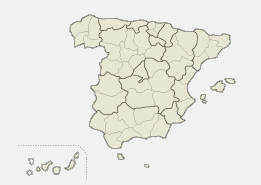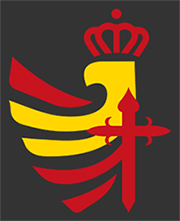- Home
- International Missions
- Texto no traducido
- EUTM Mali (European Union Training Mission) I-II-III
1st, 2nd, 3rd EUTM-Mali (European Union Training Mission in Mali)
Introduction
Mali was suffering a political, humanitarian and security crisis as a consequence of events in the north of the country since early 2012: a Tuareg rebellion followed by a military coup and the infiltration of jihadi terrorists. It had become a focus of instability which threatened the whole of the Sahel region and even Europe.
Confronted with that critical situation, the Malian interim president sent an official request for assistance to the secretary general of the United Nations and to the Economic Community of West African States (ECOWAS). In order to attend that request, the UN Security Council issued Resolution 2071 (2012), dated 12 October, inviting the international community to offer help, expertise, training and support to the Malian army and security forces.
EUTM Mali does not include combat operations. Its activities are coordinated with those of other missions deployed in the area by the United Nations and ECOWAS.
The Spanish Army is taking part in the mission, training and advising the Malian armed forces so that its members acquire the combat capabilities required to operate autonomously and thus contribute to the stabilisation and pacification of the region.
The Spanish soldiers perform their task at the general headquarters in Bamako and Koulikoro; as a Protection Force company made up of two sections and a command team; and as teams charged with special operations and fire support training.
EUTM Mali I
The mission started on 8 February 2013 when an advanced reconnaissance detachment which included Lieutenant Colonel Gabino Regalado, chief of the Spanish contingent, and Major José Luis Borraz travelled to the Malian capital, Bamako, to carry out preparatory activities in order to enable the deployment of other units.
The main headquarters was established in Bamako, where a Protection Section made up of members of the 8th Legion Regiment “Colón” was stationed. Its tasks would be securing the facilities and personnel, protecting convoys and acting as a Rapid Action Force. In addition, an Advanced Headquarters and a Training Centre were established at Quartering Boubacar Sada Sy in Koulikoro.
In April fifteen instructors from the Special Operations Command (SOC) joined the Spanish contingent. They worked with the commando section of the Malian Army’s 1st Tactical Group, offering specialised tactical training in reconnaissance and coups de main.
EUTM Mali II
In mid-September 2013 the Spanish Army boosted its detachment to 110 troops. This increased Spain’s relative weight in the mission, since its contribution in terms of personnel became similar to that of France.
Among the new troops was the first team of fire support instructors, made up of members from the Campaign Artillery Group of the 1st Regiment “Roger de Flor” of the Parachute Brigade (BRIPAC by its Spanish acronym). They focused on initial training, particularly squad and platoon movement, disengagement, listening and observation, and battery orienteering and nocturnal movement. The worked alongside a new team of SOC instructors offering technical training to commandoes of the Malian Army’s 2nd Tactical Group.
EUTM Mali III
BRIPAC was substituted by Mountain Troops HQ. Specifically, the new troops came from the Climbing Skiers Company of the 64th Mountain Light Infantry Regiment “Galicia”. The military personnel stationed at the main headquarters in Bamako were also relieved – except for Colonel Félix E. García Cortijo, who remained as Deputy Chief of Mission.
In November 2013 a team of the 22nd Signal Regiment joined the contingent to carry out a study in order to improve the facilities at the Communications Centre. The cable laying was subsequently improved and systems were introduced to better protect the materiel and prevent its deterioration.
On the other hand, the SOC instructors’ mission entered its final stretch. At this stage exercises included patrolling, on-foot combat, urban warfare, IED construction, shooting and topography, as well as health patrol training.
By March 2014 four battalions of the Malian armed forces had been trained and Spain had become the main contributor to the mission, with the largest contingent of all participating nations.
ARMY UNITS
- Araba Álava |
- Albacete |
- Alicante |
- Almería |
- Asturias |
- Ávila |
- Badajoz |
- Barcelona |
- Burgos |
- Cáceres |
- Cádiz |
- Cantabria |
- Castellón |
- Ceuta |
- Ciudad Real |
- Córdoba |
- A Coruña |
- Cuenca |
- Girona |
- Granada |
- Guadalajara |
- Gipuzkoa |
- Huelva |
- Huesca |
- Islas Baleares |
- Jaén |
- León |
- Lleida |
- Lugo |
- Madrid |
- Málaga |
- Melilla |
- Murcia |
- Navarra |
- Ourense |
- Palencia |
- Las Palmas |
- Pontevedra |
- La Rioja |
- Salamanca |
- Segovia |
- Sevilla |
- Soria |
- Tarragona |
- Santa Cruz de Tenerife |
- Teruel |
- Toledo |
- Valencia |
- Valladolid |
- Bizkaia |
- Zamora |
- Zaragoza



